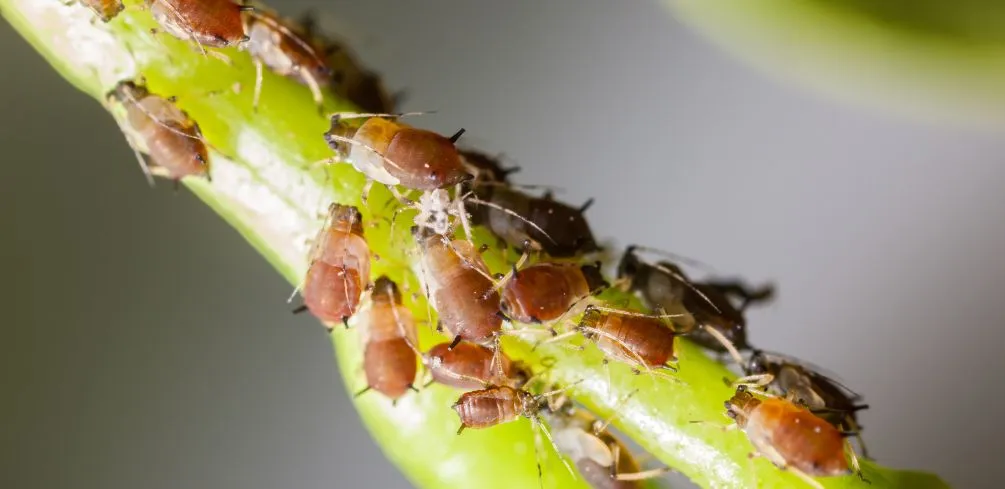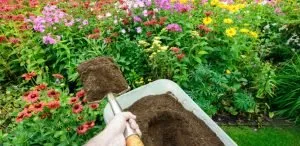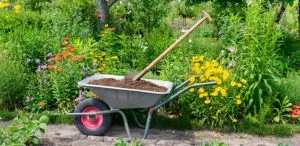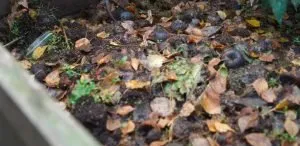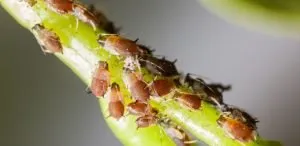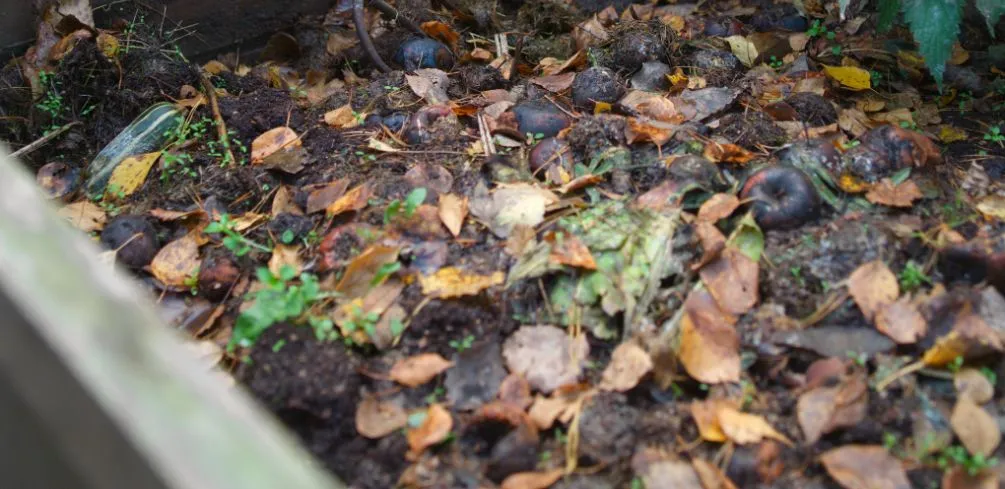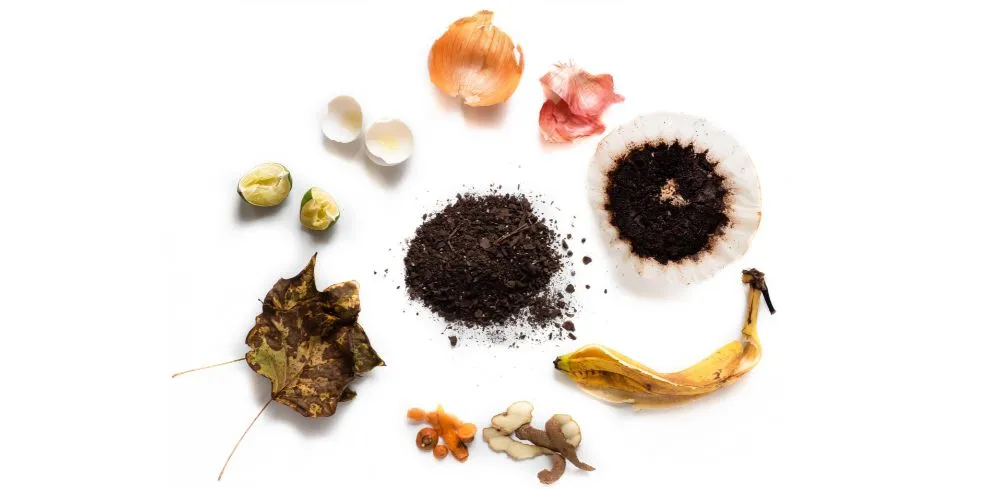Composting is a widely practiced gardening technique that has been gaining popularity in recent years. It involves the decomposition of organic materials such as kitchen scraps, yard waste, and paper products to create nutrient-rich soil amendments. Apart from being an environmentally friendly practice, composting also helps reduce waste and saves money on fertilizers.
However, like any other gardening activity, composting comes with its own set of challenges, one of which is dealing with pests. Compost pests are organisms that can interfere with the composting process and cause damage to the finished product. They come in various forms, such as insects, rodents, and microorganisms.
While some pests are harmless or even beneficial to the composting process, others can cause significant problems if not managed properly. In this article, we will discuss some common types of compost pests and their potential effects on your compost pile.
We will also provide solutions on how to prevent or manage these pests to ensure that your composting experience is successful and fruitful.
Identifying Common Compost Pests
Composting can be compared to nurturing a garden. Just as you would weed, water, and fertilize your plants, composting requires attention and care in order to succeed.
Unfortunately, like any garden, composting is not immune to pests. Common compost pests include rodents, flies, ants, mites, and slugs. These pests can cause damage to the compost pile by consuming the organic matter that should be breaking down or even bringing pathogens into the pile.
Prevention and treatment of common compost pests are essential for maintaining a healthy and effective compost pile. Signs of pest infestation in compost may include unusual smells, visible gnaw marks or holes in the pile, excessive fly activity, or even the presence of rodents around the area.
To prevent pest problems from occurring in your compost pile, it’s important to keep it covered with a lid or tarp to deter flying insects from laying their eggs on the organic matter. Additionally, adding layers of dry materials such as leaves or straw between food scraps can also help prevent pest attraction.
If an infestation does occur, treating it with natural solutions such as diatomaceous earth or nematodes can be effective without harming beneficial organisms in a pile.
Understanding The Effects Of Compost Pests On Your Garden
Compost pest types can have a significant impact on soil nutrients and ultimately affect the health of your garden. Some common pests include fruit flies, ants, sowbugs, and mites.
Fruit flies and ants are attracted to decaying fruit and sugar-based materials, while sowbugs prefer moist environments. Mites can also be a problem in compost piles as they feed on fungi and bacteria.
It’s essential to understand the importance of compost maintenance to prevent pests from taking over. Regular checks should be conducted to ensure the temperature of the pile is high enough to kill off any unwanted guests.
Additionally, turning the pile regularly will help aerate it, which can also deter pests. By maintaining your compost properly and keeping an eye out for potential problems, you can ensure that your garden stays healthy and free from harmful pests.
Prevention Methods For Compost Pests
Preventing pests in your compost pile is a task that requires a bit of strategy and planning. But fear not, as we have compiled a list of prevention methods that will make your compost pile an inhospitable environment for unwanted guests. After all, nobody wants their compost pile to become a five-star hotel for pests!
Firstly, it’s important to remember the Composting Basics: make sure your compost pile is well-maintained and has adequate drainage. A soggy compost pile can attract insects and rodents that thrive in moist environments.
Secondly, keep a watchful eye on the types of materials you add to your compost pile. Avoid adding meat, dairy, or oily foods as they can attract pests such as rats and raccoons.
Thirdly, turn your compost regularly to ensure proper ventilation and prevent any warm pockets from forming, which could attract pests.
And finally, cover your compost pile with a tarp or other material to restrict access for unwanted visitors.
With these Pest Management Strategies in mind, you’re well on your way to maintaining a pest-free compost pile! Remember to stay vigilant and implement these techniques regularly to ensure that you don’t have any unwelcome guests setting up camp in your backyard.
By following these simple guidelines, you’ll be able to create rich, nutrient-dense soil without any hassle or fuss – just the way nature intended.
Organic Solutions For Controlling Compost Pests
One of the simplest and most effective ways to control pests in a compost pile is to introduce beneficial insects. Beneficial insects refer to those that naturally prey on other insects, thereby reducing their population.
One well-known example is the ladybug, which feeds on aphids and other soft-bodied pests. Other beneficial insects include lacewings, parasitic wasps, and ground beetles, among others.
Another effective method of controlling compost pests is companion planting. Companion planting involves growing certain plants alongside others to discourage pests from attacking them.
For instance, marigolds are known to repel nematodes, while garlic and onions can deter slugs and snails. Similarly, planting herbs such as basil or rosemary near your compost pile can help keep flies away.
By incorporating these organic solutions into your composting practices, you can effectively manage pests without resorting to harmful chemicals or pesticides.
Troubleshooting Pest Problems In Your Compost Pile
When it comes to composting, pests are a common problem that can disrupt the process and even cause unpleasant odors. One of the most commonly encountered pests in compost piles is maggots. These small, white larvae may seem harmless, but they can quickly multiply and infest your compost if not dealt with promptly.
Dealing with maggots in your compost pile can be a bit tricky. While they are not harmful to humans or pets, they can attract other unwanted insects and create a foul smell.
To get rid of maggots, you should first make sure that your compost pile is properly balanced with a mix of brown and green materials. If your pile is too wet or has too much nitrogen-rich material, this can create an ideal breeding ground for maggots.
You can also try adding some dry leaves or shredded newspaper to absorb excess moisture and discourage maggot growth. Finally, turning your compost regularly will help expose any maggots to air and sunlight, which can kill them off naturally.
On the other hand, attracting beneficial insects to your compost pile is an effective way to prevent pest problems and promote healthy decomposition. Some examples of beneficial insects include earthworms, soldier beetles, and rove beetles. These creatures help break down organic matter in your compost pile while also preying on other pests like flies and mites.
To attract these helpful bugs to your compost pile, you should avoid using pesticides or insecticides that could harm them. Instead, focus on creating a hospitable environment by maintaining a proper balance of carbon-rich and nitrogen-rich materials in your pile, keeping it moist but not too wet, and providing shelter from extreme temperatures or weather conditions.
By doing so, you’ll ensure that your compost pile stays healthy and free from harmful pests while also promoting biodiversity in your garden ecosystem.
Frequently Asked Questions
Can Compost Pests Harm Humans Or Pets?
When it comes to composting, there may be health risks associated with pests that can harm humans or pets. Pest management is a crucial aspect of composting to prevent the spread of disease and infections.
The presence of pests such as rodents, flies, and ants can lead to contamination of the compost material and cause harmful bacteria to proliferate.
These bacteria can pose a significant threat to human health if ingested or inhaled. Therefore, it is essential to take proactive measures in managing pests in the composting process to ensure that the end product is free from any potential health hazards.
Can Compost Pests Cause Damage To Compost Bins Or Composting Equipment?
As the adage goes, prevention is better than cure. This holds true even in the context of compost bins and composting equipment.
It is important to take measures that prevent infestations from occurring in the first place rather than dealing with them after they have already caused damage. Effective pest management strategies can be employed to keep pests at bay and protect compost bins and equipment.
These strategies include regular monitoring, proper storage of compost materials, and maintaining a balanced ratio of carbon to nitrogen. By implementing these measures, compost enthusiasts can ensure that their equipment remains intact and continues to function optimally for years to come.
Can Compost Pests Affect The Quality Or Nutrient Content Of Compost?
Compost pests can affect the quality and nutrient content of compost, which in turn can impact plant growth. Infestations by these pests may lead to a decrease in the concentration of beneficial nutrients, such as nitrogen, phosphorus, and potassium, in the end product. This can result in poor soil health and reduced crop yields.
Controlling compost pests is, therefore, crucial for ensuring that the composting process produces high-quality fertilizers that are rich in essential plant nutrients. Effective pest management strategies include maintaining proper moisture levels, turning the compost regularly to promote aeration, and using natural predators or traps to eliminate pest populations.
By adopting these measures, farmers and gardeners can ensure that their compost is free from pests and provides optimal nutrition for their plants.
How Do Compost Pests Affect The Decomposition Process?
Understanding how compost pests affect the decomposition process is crucial for Managing Infestations and maintaining a healthy compost pile. Unwanted insects, such as flies and maggots, can increase the rate of decomposition but also attract other pests that may disrupt the balance of the compost ecosystem.
The presence of natural predators, such as nematodes and predatory mites, can help control pest populations without harming beneficial organisms in the compost. Incorporating these natural solutions into a compost management plan can reduce the negative impacts of pests on the decomposition process and ultimately lead to a more nutrient-rich end product.
Can Compost Pests Attract Other Pests Or Wildlife To The Garden?
The presence of compost pests can potentially attract other pests or wildlife to the garden. This could be due to the fact that certain compost materials and food scraps are attractive to a wide range of creatures, including rodents and insects.
However, pest management strategies can help prevent this type of issue from occurring. Properly securing compost bins and using natural deterrents such as citrus peels or coffee grounds can discourage unwanted visitors. In addition, maintaining a balanced and healthy compost pile can also reduce the likelihood of attracting pests in the first place.
By implementing these measures, gardeners can enjoy the benefits of composting without worrying about unwanted wildlife disrupting their efforts.
Conclusion
Compost pests can be a nuisance for gardeners, but they are not harmful to humans or pets. However, they can cause damage to compost bins and equipment.
Additionally, compost pests affect the decomposition process by slowing it down or causing it to stop altogether. This can have an impact on the quality and nutrient content of the compost.
To prevent compost pests from becoming a problem, gardeners should keep their compost bins covered and avoid adding meat, dairy, or oily foods. They can also use natural remedies such as diatomaceous earth or nematodes to control pests.
Despite these challenges, composting remains an important practice for sustainable gardening. By using organic materials to create nutrient-rich soil, gardeners are able to improve the health of their plants and reduce waste in landfills.
With proper care and attention, gardeners can overcome any pest problems that arise and continue reaping the benefits of composting for years to come.
